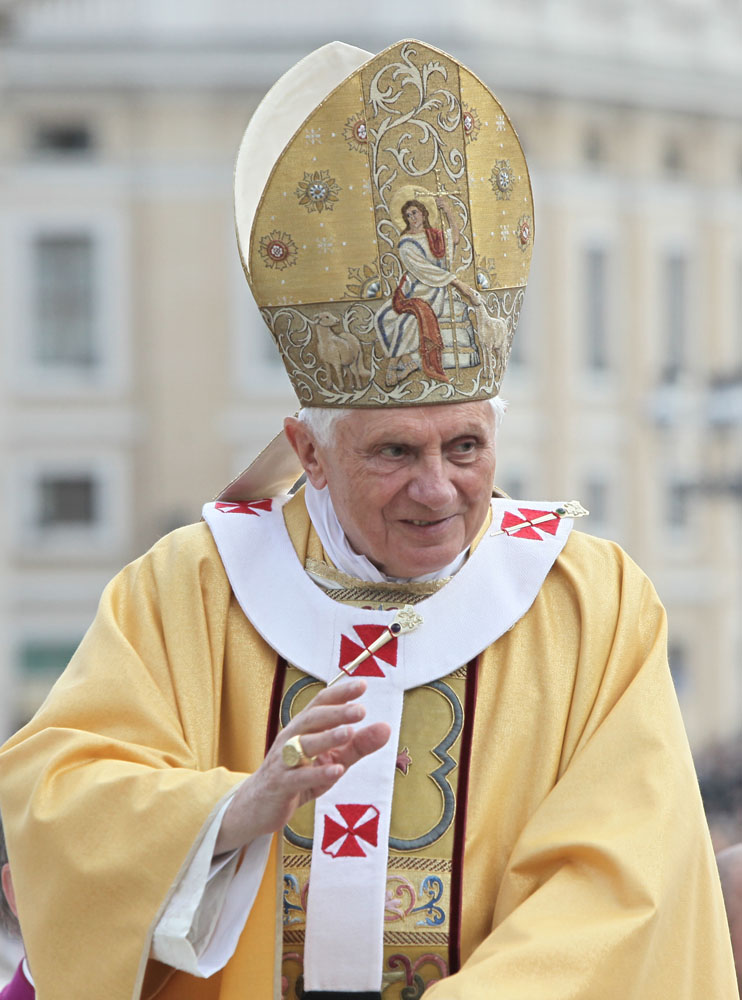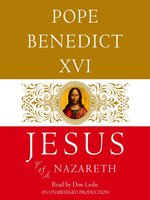Pope Benedict XVI
 Pope BenedictXVI (; ; ; born Joseph Alois Ratzinger, ; 16 April 1927 – 31 December 2022) was head of the Catholic Church and sovereign of the Vatican City State from 19 April 2005 until his resignation on 28 February 2013. Benedict's election as pope occurred in the 2005 papal conclave that followed the death of Pope John Paul II. Upon his resignation, Benedict chose to be known as "Pope emeritus", and he retained this title until his death in 2022.
Pope BenedictXVI (; ; ; born Joseph Alois Ratzinger, ; 16 April 1927 – 31 December 2022) was head of the Catholic Church and sovereign of the Vatican City State from 19 April 2005 until his resignation on 28 February 2013. Benedict's election as pope occurred in the 2005 papal conclave that followed the death of Pope John Paul II. Upon his resignation, Benedict chose to be known as "Pope emeritus", and he retained this title until his death in 2022.Ordained as a priest in 1951 in his native Bavaria, Ratzinger embarked on an academic career and established himself as a highly regarded theologian by the late 1950s. He was appointed a full professor in 1958 at the age of 31. After a long career as a professor of theology at several German universities, he was appointed Archbishop of Munich and Freising and created a cardinal by Pope Paul VI in 1977, an unusual promotion for someone with little pastoral experience. In 1981, he was appointed Prefect of the Congregation for the Doctrine of the Faith, one of the most important dicasteries of the Roman Curia. From 2002 until he was elected pope, he was also Dean of the College of Cardinals. Before becoming pope, he had been "a major figure on the Vatican stage for a quarter of a century"; he had had an influence "second to none when it came to setting church priorities and directions" as one of John Paul II's closest confidants.
Benedict's writings were prolific and generally defended traditional Catholic doctrine, values, and liturgy. He was originally a liberal theologian but adopted conservative views after 1968. During his papacy, Benedict advocated a return to fundamental Christian values to counter the increased secularisation of many Western countries. He viewed relativism's denial of objective truth, and the denial of moral truths in particular, as the central problem of the 21st century. Benedict also revived several traditions and permitted greater use of the Tridentine Mass. He strengthened the relationship between the Catholic Church and art, promoted the use of Latin, and reintroduced traditional papal vestments, for which reason he was called "the pope of aesthetics". He also established personal ordinariates, for former Anglicans and Methodists, joining the Catholic Church. Benedict's handling of sexual abuse cases within the Catholic Church and opposition to usage of condoms in areas of high HIV transmission was substantially criticised by public health officials, anti-AIDS activists, and victim's rights organizations.
On 11 February 2013, Benedict announced his (effective 28 February 2013) resignation, citing a "lack of strength of mind and body" due to his advanced age. His resignation was the first by a pope since Gregory XII in 1415, and the first on a pope's initiative since Celestine V in 1294. He was succeeded by Francis on 13 March 2013 and moved into the newly renovated Mater Ecclesiae Monastery in Vatican City for his retirement. In addition to his native German language, Benedict had some level of proficiency in French, Italian, English, and Spanish. He also knew Portuguese, Latin, Biblical Hebrew, and Biblical Greek. He was a member of several social science academies, such as the French Académie des Sciences Morales et Politiques. He played the piano and had a preference for Mozart and Bach.
Provided by Wikipedia

